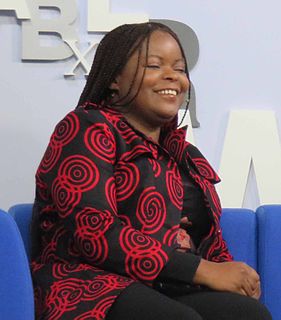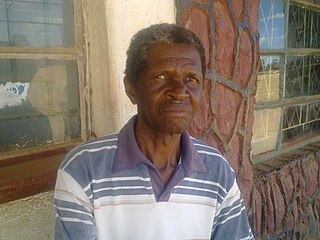 W
WNoViolet Bulawayo is the pen name of Elizabeth Zandile Tshele, is a Zimbabwean author, and Stegner Fellow at Stanford University (2012–14). In 2012, the National Book Foundation named her a 5 under 35 honoree.
 W
WTsitsi Dangarembga is a Zimbabwean novelist, playwright, and filmmaker. Her debut novel, Nervous Conditions (1988), which was the first to be published in English by a Black woman from Zimbabwe, was named by the BBC in 2018 as one of the top 100 books that have shaped the world. In 2020, her novel This Mournable Body was shortlisted for the Booker Prize.
 W
WPetina Gappah is a Zimbabwean lawyer and writer. She writes in English, though she also draws on Shona, her first language. In 2016, she was named African Literary Person of the Year by Brittle Paper. In 2017 she had a DAAD Artist-in-Residence fellowship in Berlin.
 W
WDoris May Lessing was a British-Zimbabwean (Rhodesian) novelist. She was born to British parents in Iran, where she lived until 1925. Her family then moved to Southern Rhodesia, where she remained until moving in 1949 to London, England. Her novels include The Grass Is Singing (1950), the sequence of five novels collectively called Children of Violence (1952–1969), The Golden Notebook (1962), The Good Terrorist (1985), and five novels collectively known as Canopus in Argos: Archives (1979–1983).
 W
WMorgan Mahanya is a Zimbabwean Shona-language writer of detective fiction and war fiction. He has published 13 books since 1976, including books in Shona and in English, both fiction and nonfiction. Mahanya is one of the pioneering writers of detective stories in the Shona language. His books Chidamwoyo, Zvinoyera and The Wound are about the Rhodesian Bush War.
 W
WAlexander "Sandy" McCall Smith, CBE, FRSE, is a British-Zimbabwean writer and Emeritus Professor of Medical Law at the University of Edinburgh. In the late 20th century, McCall Smith became a respected expert on medical law and bioethics and served on British and international committees concerned with these issues.
 W
WYvonne Vera was an author from Zimbabwe. Her first published book was a collection of short stories, Why Don't You Carve Other Animals (1992), which was followed by five novels: Nehanda (1993), Without a Name (1994), Under the Tongue (1996), Butterfly Burning (1998), and The Stone Virgins (2002). Her novels are known for their poetic prose, difficult subject-matter, and their strong women characters, and are firmly rooted in Zimbabwe's difficult past. For these reasons, she has been widely studied and appreciated by those studying postcolonial African literature.